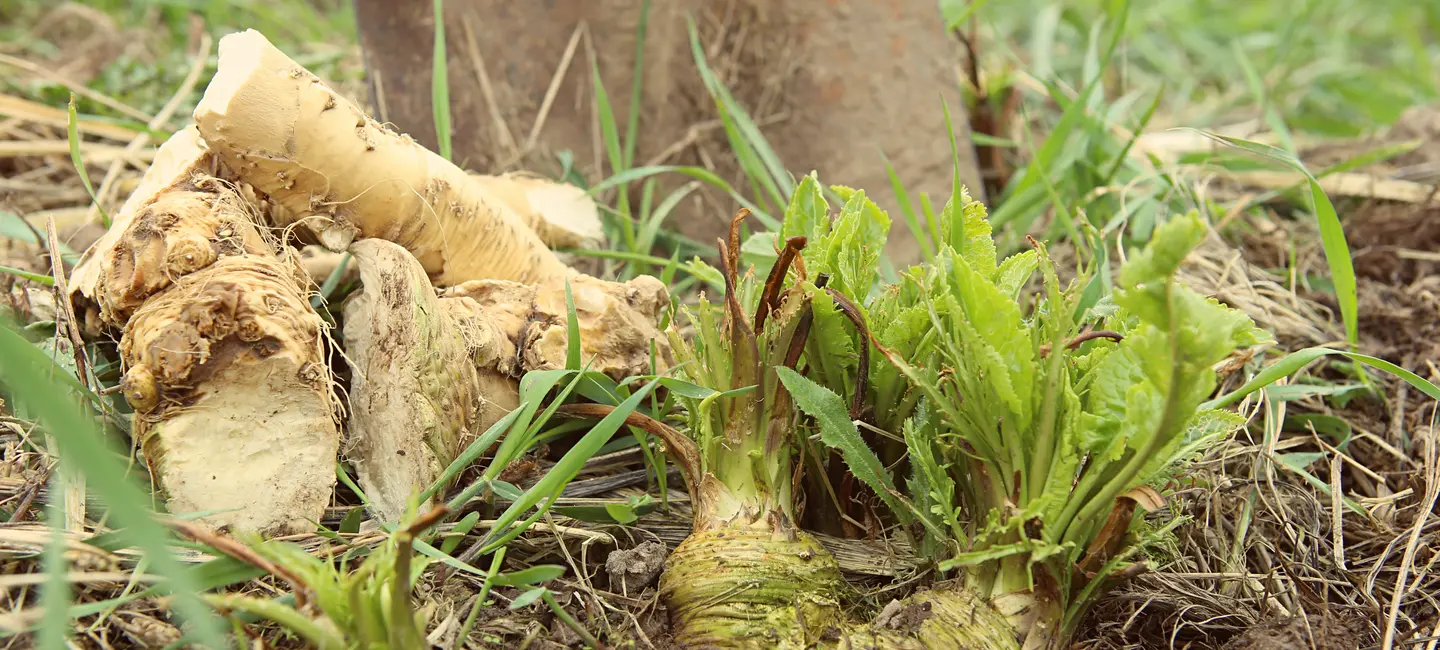
Horseradish (Armoracia rusticana) is a plant. The roots are often used as a condiment and eaten with beef and fish. They are also sometimes used as medicine.
Horseradish might help fight bacteria and stop spasms.
People use horseradish for urinary tract infections (UTIs), colic, gout, and many other conditions, but there is no good scientific evidence to support these uses.
Don't confuse horseradish with moringa or wasabi. These are not the same.
Is It Effective?
There is interest in using horseradish for a number of purposes, but there isn't enough reliable information to say whether it might be helpful.
Is it Safe?
When taken by mouth: Horseradish root is commonly consumed with foods. It is possibly safe when used as medicine for up to 12 weeks. But it contains mustard oil, which can irritate the lining of the mouth and stomach. When consumed in large amounts, side effects might include stomach upset, bloody vomiting, diarrhea, and fainting.
When applied to the skin: Horseradish is possibly safe when preparations containing 2% mustard oil or less are used. It can cause skin irritation and allergic reactions.
Special Precautions & Warnings:
Pregnancy: Horseradish is commonly consumed with foods. But it's likely unsafe to use horseradish tincture by mouth regularly or in large amounts when pregnant. This might lead to miscarriage.
Breast-feeding: Horseradish is commonly consumed with foods. But it's likely unsafe to take horseradish by mouth in large amounts when breast-feeding. Horseradish contains mustard oil, which can pass into breast milk and cause serious adverse effects.
Children: Horseradish is likely unsafe when taken by mouth in children under 4 years of age. It can cause stomach problems in young children.
Stomach or intestinal ulcers, inflammatory bowel disease, infections or other digestive tract conditions: Horseradish can irritate the digestive tract. Don't use horseradish if you have any of these conditions.
Thyroid disorders: Horseradish might make this condition worse. If you have a thyroid disorder, speak with your healthcare provider before taking horseradish.
Thyroid hormone
Interaction Rating=Moderate Be cautious with this combination.
Horseradish might decrease thyroid activity. Taking horseradish along with thyroid hormone might decrease the effects of thyroid hormone.
Herbs with thyroid activity: Horseradish might affect the body's production of thyroid hormone. Taking it with other supplements with similar effects might alter thyroid function too much and cause side effects. Examples of supplements with this effect include bugleweed, lemon balm, and tiratricol.
There are no known interactions with foods.
Horseradish root is commonly consumed with foods as a condiment.
As medicine, there isn't enough reliable information to know what an appropriate dose of horseradish might be. Keep in mind that natural products are not always necessarily safe and dosages can be important. Be sure to follow relevant directions on product labels and consult a healthcare professional before using.
Amoraciae Rusticanae Radix, Armoracia lopathifolia, Armoracia rusticana, Cochlearia armoracia, Cran de Bretagne, Cranson, Grand Raifort, Great Raifort, Meerrettich, Mountain Radish, Moutarde des Allemands, Moutarde des Capucins, Moutardelle, Nasturtium armoracia, Pepperrot, Rábano Picante, Rábano Rústico, Radis de Cheval, Raifort, Raifort Sauvage, Red Cole, Rorippa armoracia.
Information on this website is for informational use only and is not intended to replace professional medical advice, diagnosis, or treatment. While evidence-based, it is not guaranteed to be error-free and is not intended to meet any particular user’s needs or requirements or to cover all possible uses, safety concerns, interactions, outcomes, or adverse effects. Always check with your doctor or other medical professional before making healthcare decisions (including taking any medication) and do not delay or disregard seeking medical advice or treatment based on any information displayed on this website.
© TRC Healthcare 2024. All rights reserved. Use and/or distribution is permitted only pursuant to a valid license or other permission from TRC Healthcare.
